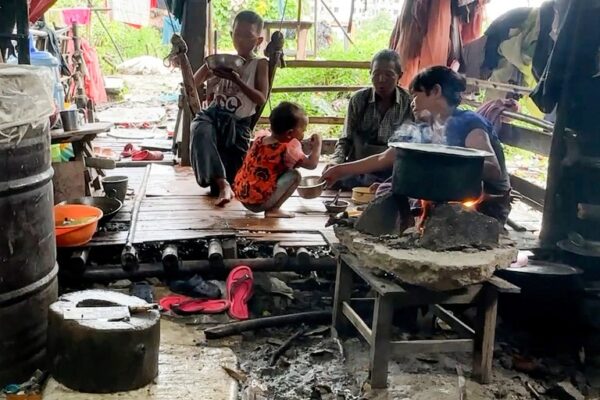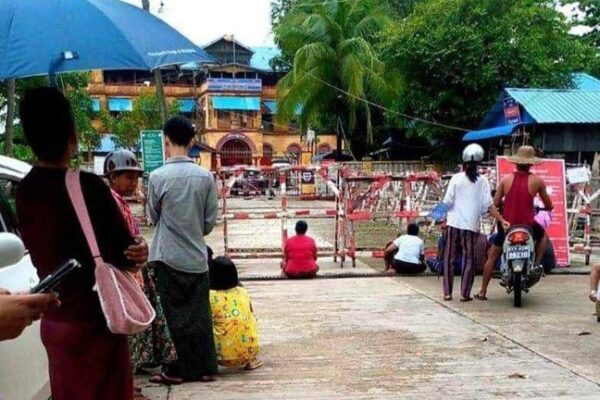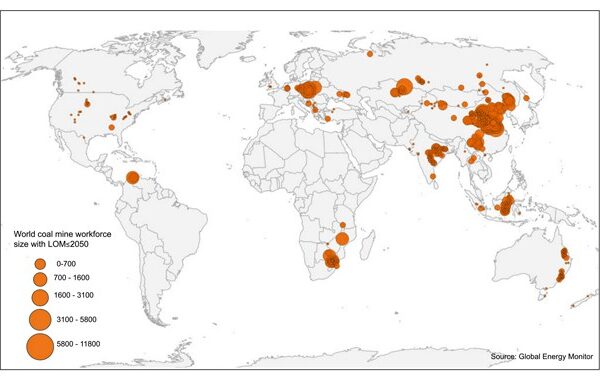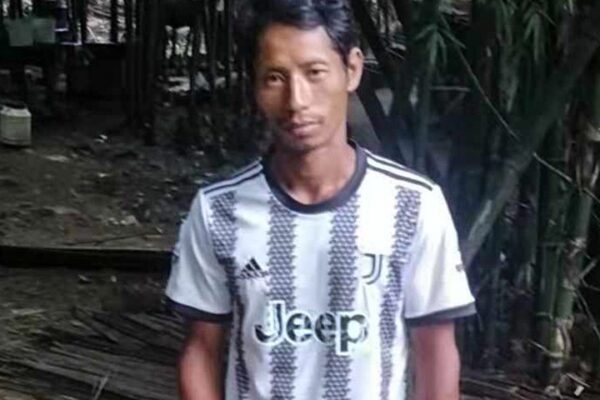
Yangon residents skip meals amid soaring rice and cooking oil prices
Residents in Myanmar’s largest city of Yangon are having to eat less food because rice and cooking oil prices have more than doubled – and sometimes tripled – since the junta came to power in the February 2021 coup, they told Radio Free Asia. The economy of Myanmar has suffered under the junta with unemployment rising sharply and price increases for nearly all commodities. Residents report that their wages have not increased amid rampant inflation. Aye Aye Thin, the matriarch of her family, told RFA Burmese that the adults are skipping meals so that the children can have their fill. “Before 2021, I could cook seven tins of rice, and my family was well fed,” she said. “After the coup, I can cook only four tins of rice. Our income is not enough because rice and cooking oil prices are skyrocketing.” She said that everyone in the house eats a morning meal, but the adults skip the afternoon meal because there is nothing left. “We have to go to bed hungry,” Aye Aye Thin said. “I haven’t seen good quality rice and cooking oil for a long time.” Another resident, Thin Zar, said that she skips meals so that she can feed her son and husband. “It is not enough to buy rice with 1,000 or 2,000 kyats (48 U.S. cents to $1). Only when I buy 2,500 kyats ($1.20) worth of rice, it is just enough for my husband and son,” she said. “Mostly, I’m starving. The only way we’re all well fed is if there is charity.” War and price controls There are several reasons for the surging rice prices, including unrealistic price controls, transport restrictions and fighting that has destroyed farms and farmland. Farmers told RFA that since junta troops burned houses and barns in Shwebo, Kanbalu Khin-U, Ye-U and Taze townships, they can no longer grow as much rice as they could before. There are several Destruction of rice fields and homes, or forcing people to flee in rice-producing upper Myanmar, price control by the junta authorities and transport restrictions are the reasons for higher rice prices in Myanmar. “Wages are not increasing, it’s only the price of goods that keeps going up,” Khin Maung Win, who used to own an apartment in Yangon, now lives as a tenant. Credit: RFA Khin Maung Win, who used to own an apartment in Yangon, now lives as a tenant. He told RFA that over the last two or three years, prices have risen but wages have not. Rice prices have tripled, and the price of lower quality rice, which has red seeds mixed in, isn’t that much lower, he said. Cooking oil The price of cooking oil has also jumped. Customers who once were able to afford sunflower oil or peanut oil now have to line up to buy cheaper palm oil because prices have been rising and there is a cooking oil shortage, Ma Soe, a grocery store owner, told RFA. “In a period of three years, the [cooking oil] prices have doubled or tripled, so they can’t afford sunflower oil or peanut oil anymore,” he said. “People of all walks of life can only afford palm oil. But the stores can’t get enough.” A rice shop in Yangon is seen on Oct. 4, 2023. The price of even low-grade rice has doubled. Credit: RFA On Sept. 9, Myanmar junta chief Senior Gen. Min Aung Hlaing said that action has been taken against those who are speculating on commodity prices. However, Kyi Tha, an economic analyst, said that such action can be ruinous for economic growth. “They arrest and imprison rice and oil merchants. They extort them. They told the merchants that they had to sell at set prices,” he said. “You can’t create an economic boom by orders and authority.” According to the analysis of Trading Economics, which provides data for the economic indicators of 196 countries, Myanmar’s unemployment rate was only 0.7 percent in 2019, and now it has reached 2.2 percent in 2023. In a list of the 25 poorest countries in the world 2023, published by the International Monetary Fund, Myanmar is ranked 24, the poorest country in Southeast Asia. Translated by Htin Aung Kyaw. Edited by Eugene Whong and Malcolm Foster.







